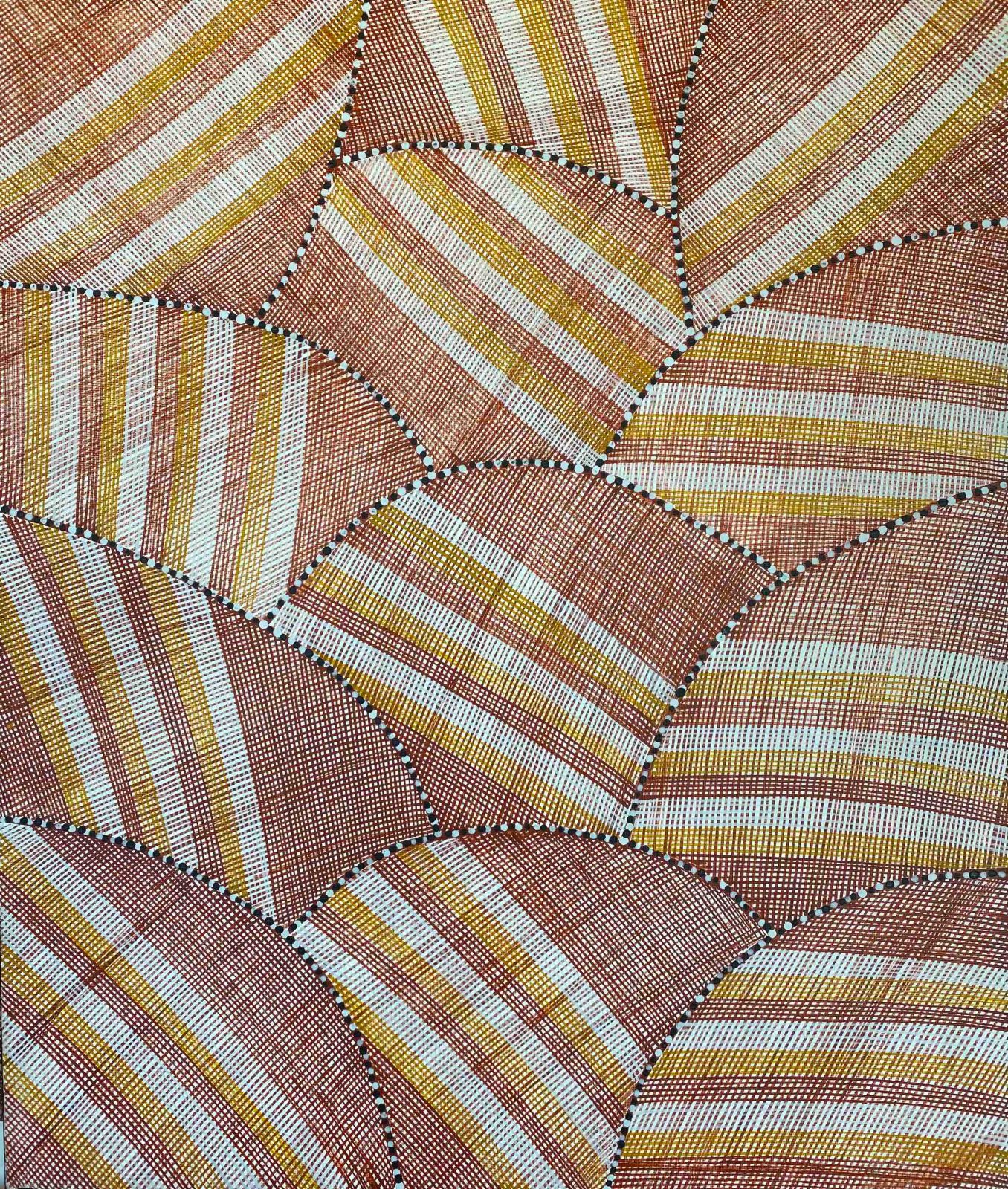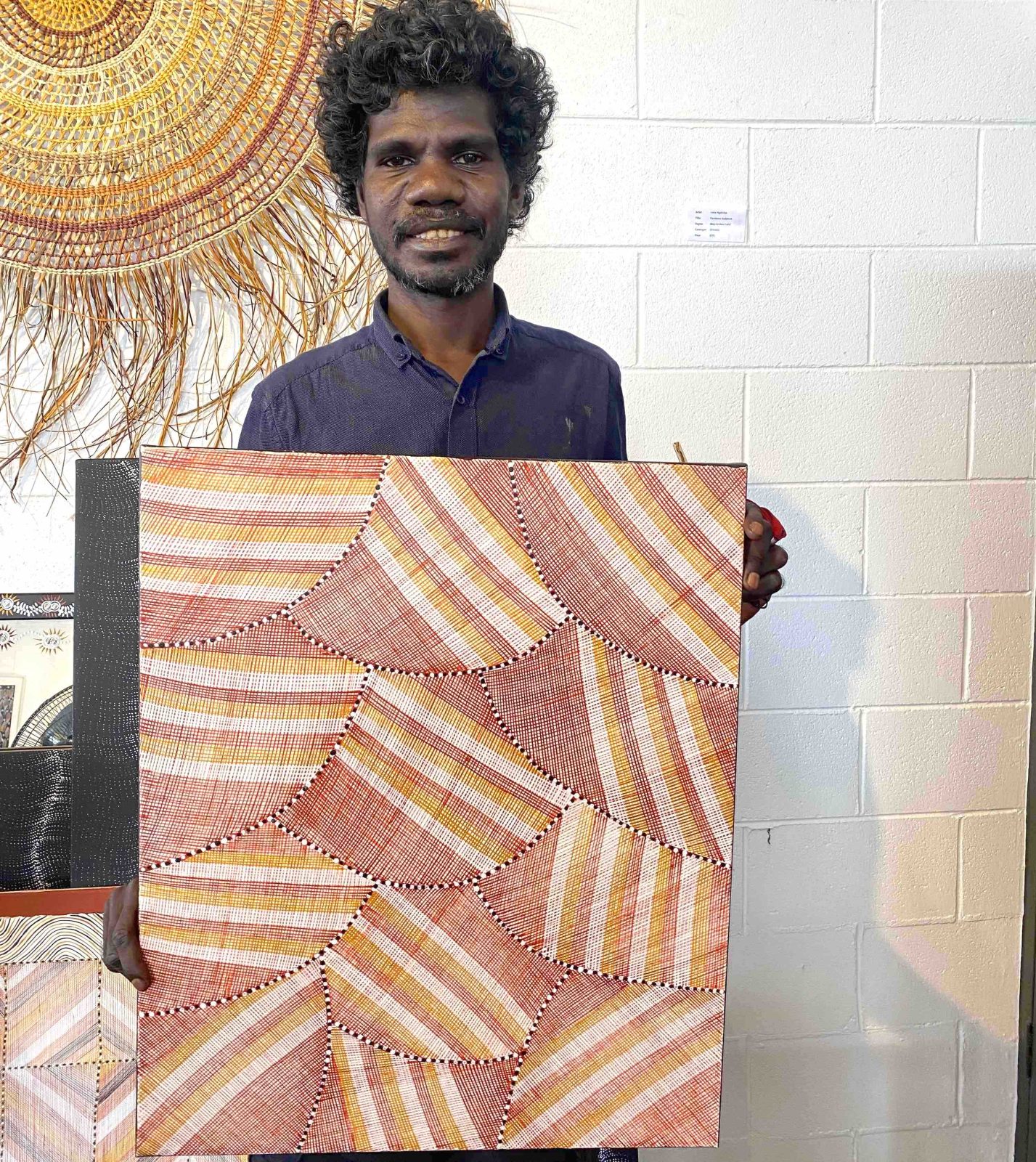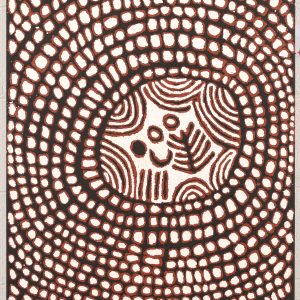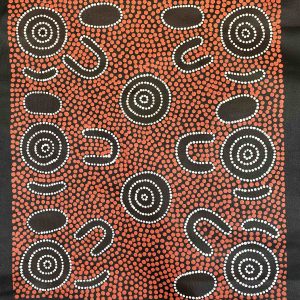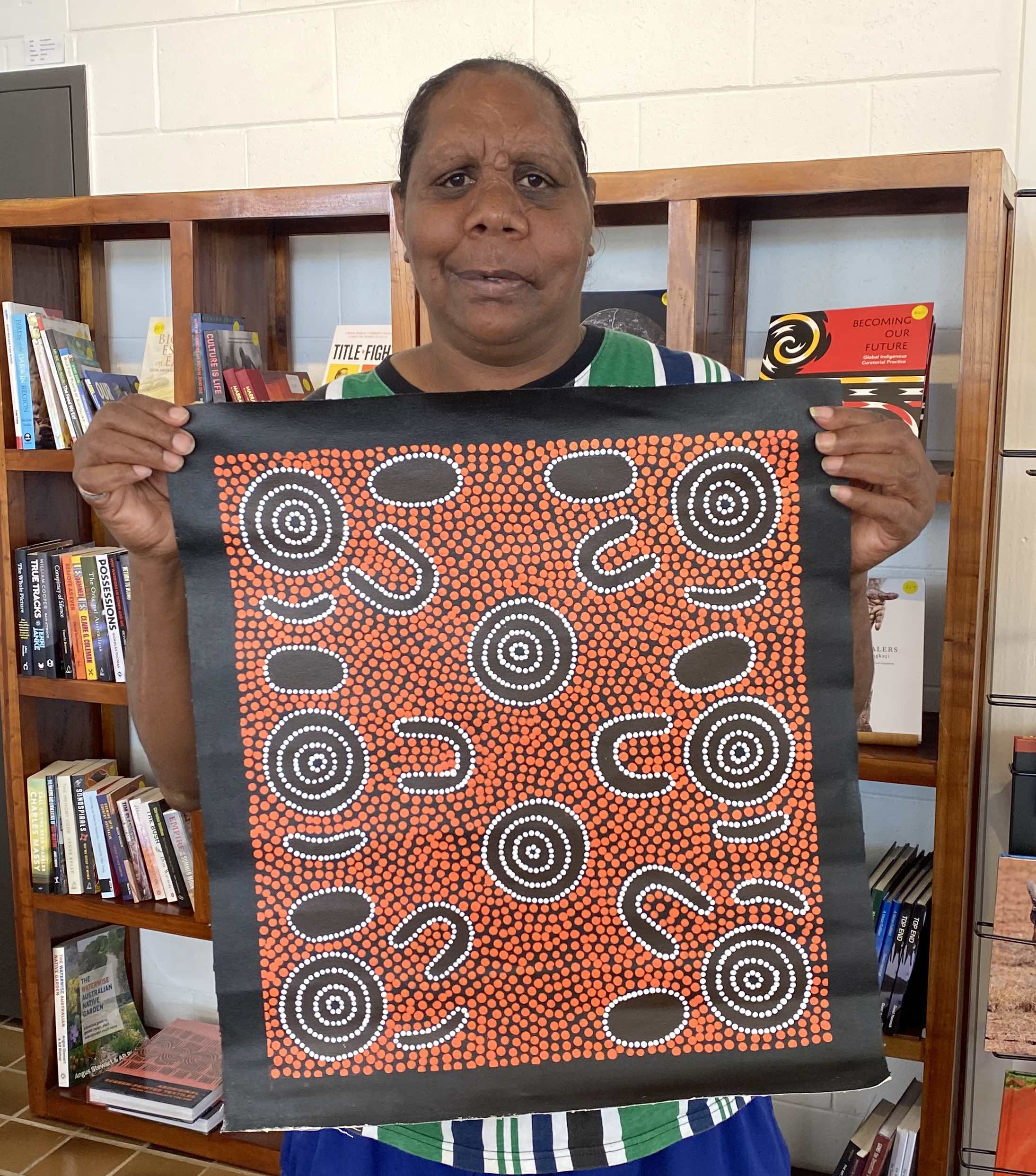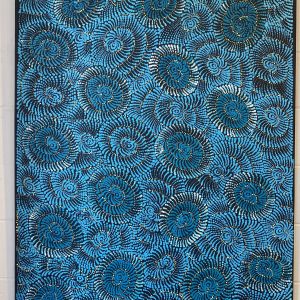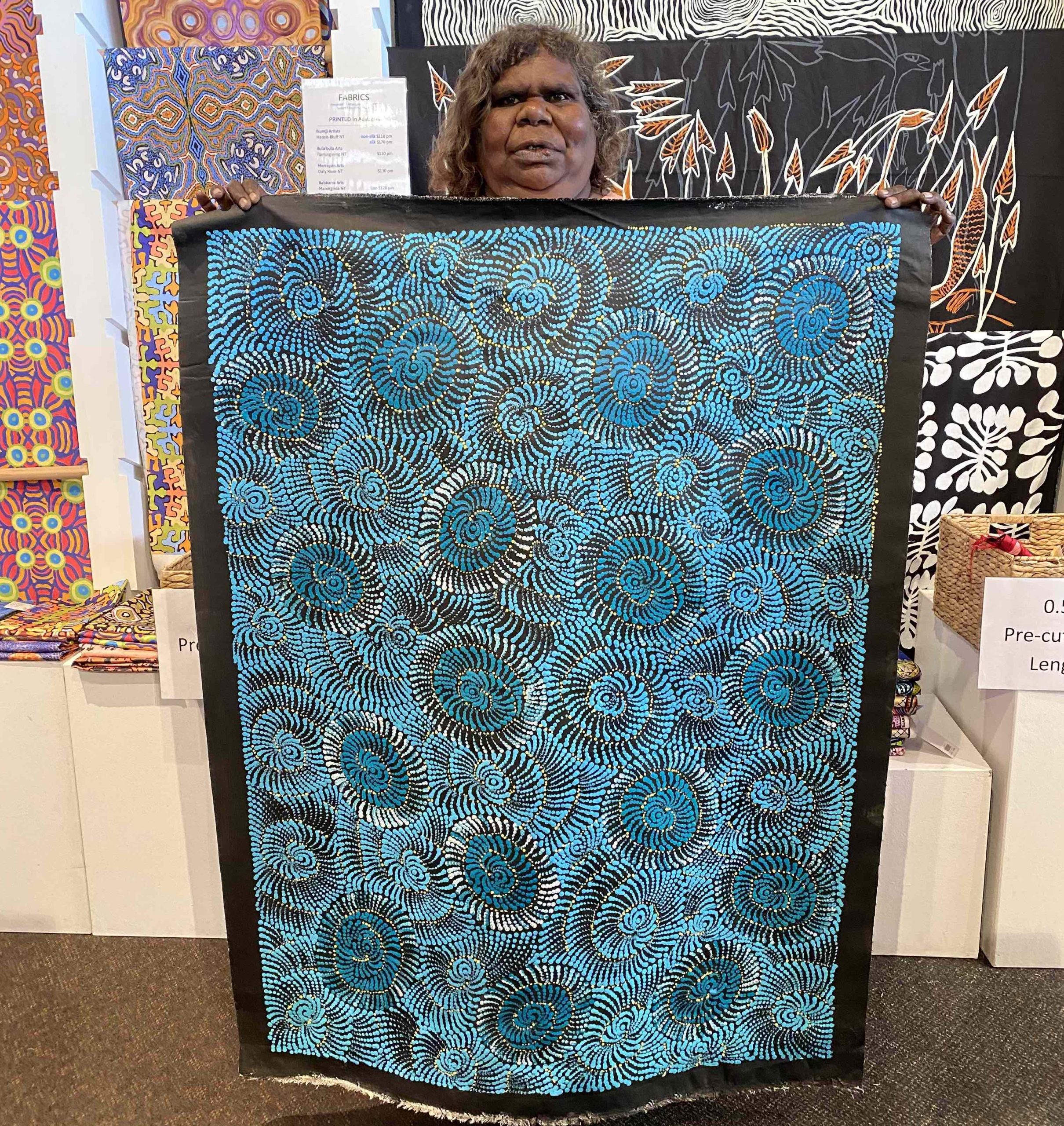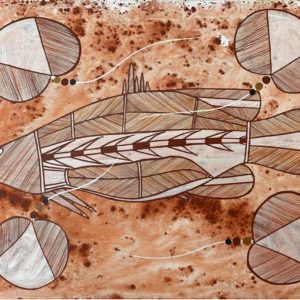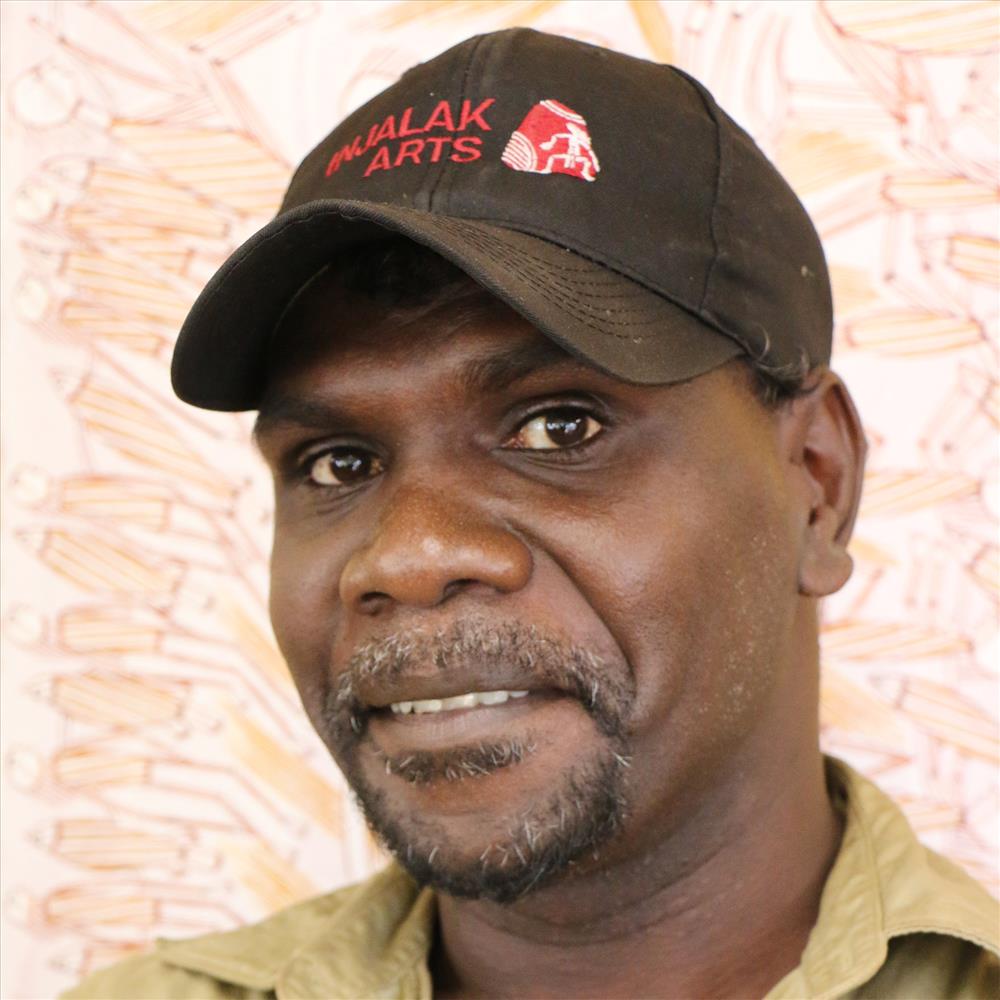Description
- Name Kenan Namundja / Namunjdja
- Skin name Kodjok
- Clan Kardbam
- Born 1989
- Language group Bininj-Kunwok
- Community Maningrida, NT
Kunkurra (spiralling wind) is for the Mankorlod area. [It] has songs, so when we sing, kunkurra comes out. Kunkurra is not easy, kunkurra is really hard. It blows everything away, like a cyclone. My father, he painted all these together, kalawan (goanna), ngalng (yabby/freshwater crustacean), nawaran (Oenpelli python), the sacred sites, their ceremonies, they are all linked. — Kenan Namunjdja
Kenan Namunjdja is the eldest son of artists Bulanj (1965-2018) and Deborah Yulidjirri (daughter of Thompson Yulidjirri). Trained by his father who was nationally and internationally recognised for his particularly fine rarrk and depiction of the kunkurra (spiralling wind). His paternal grandfather, Peter Marralwanga (1916-1987), was also celebrated bark painter and a leader in the 1970’s Outstation movement returning family to clan country. Kenan continues this strong legacy, through his exceptionally fine mark-making in depicting the djang of his country, Mankorlod. Kenan’s father’s brother is Glen Namundja who lives in Gunbalanya (Oenpelli) and is a member of Injalak Arts.
Namundja rose to prominence pre-pandemic, when his work was selected by curator Mitch Cairns for inclusion in PRIMAVERA at the Museum of Contemporary Art.
Kenan spent a number of months in Darwin at the beginning of 2023 as he waited for major repairs to his Prado’s motor and then for the road back to Maningrida to become passable again. During this time he created a number of artworks for Songlines. Felicity had worked closely with Kenan’s father in the early 1990s when she was the first manager of Injalak Arts (1991-95). In 1994 they had take a trip to Sydney for an exhibition and visited Taronga Zoo. Later the family moved further east to live in their homeland. Tragically Kenan’s father died a few years ago from a heart attack when he was in his early 50s.
Excerpt of catalogue below:
Kenan integrates place, temporality and Kuninjku cosmology in his art. As an outsider to this world, the profundity of such knowledge systems can only be sensed, never fully grasped or contained by words. Namunjdja began learning from an early age, living between the Gunbalanya community and Marrkolidjban, the outstation established by his grandfather Peter Marralwanga (1916–1987), who was an important ceremonial leader and accomplished bark painter. With his family, he later moved to the Maningrida community and regularly visited Mankorlod, the outstation of his father, Bulanj Samuel Namunjdja). There, on the Kardbam clan estate, they walked, hunted, visited the surrounding rock art galleries, shared stories and, day after day, he watched his father paint. Namunjdja’s work is a powerful expression of his knowledge and what it is to belong.
From Primavera 2019, MCA

